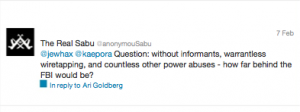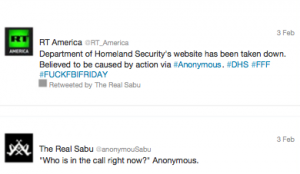Remember When Russia’s Enemy Helped the Mujahadeen Neutralize Russia’s Most Effective Weapon?
“Bluster”! “Exaggeration”!
Those are some of the words Joe Lieberman and some more credible people are using to dismiss Iran’s claim that it has accessed the data from the Sentinel drone it brought down last year.
Aside from “independent experts” pointing out the obvious fact that Iran could have gotten details about the Sentinel’s use to surveil Osama bin Laden’s compound from public reports (though how would it have gotten the specific dates?), the US security establishment has offered no detailed explanation of how Iran got the data it claims to have taken from the drone.
General Hajizadeh cited as evidence data that he said was extracted from the drone’s computer hard drives revealing its operations in the months before it went down in Iran — either because it was shot down, as Iranian officials have claimed, or because it experienced a technical failure, as the Americans have said.
The drone, he said, had undergone repairs in California in October 2010 and returned to Afghanistan in November 2010, where American officials have acknowledged it operated, though without specifying where its missions took it. He added that the drone’s computer memory revealed that it had flown over the compound in Pakistan where Osama bin Laden was killed in an American raid in May 2011.
“Had we not accessed the plane’s softwares and hard disks, we wouldn’t have been able to achieve these facts,” General Hajizadeh said, according to the news agency Fars.
The White House and American intelligence officials declined Sunday to comment on the new claims, though independent experts expressed skepticism. They noted that the information about the drone’s activities — including its use in the Bin Laden raid — could have been drawn from public reports about the sophisticated aircraft.
That may not entirely confirm that the data cited by Iran is accurate, but it sure doesn’t refute it.
That said, all these experts bewailing “bluster” have not mentioned the more obvious explanation behind Iran’s claim–even though just three days ago the news was filled with reports of Russia and China asking for information on the drone and much of the coverage of this latest fact acknowledges that in their stories.
Consider: while the OBL surveillance (though not the timing) was publicly reported, the maintenance records cited by the Iranians probably aren’t. But those details are more likely to be available not in the drone itself, but on Lockheed’s networks, which were hacked (though Lockheed claims no data was compromised) last year; everyone blames China for that hack. And if China has been able to access drone data off our networks like they’ve been able to access all our other weapons development data, then it would presumably make it a lot easier to break the encryption on the Sentinel drone itself.
Our fear-mongering about Iran, as well as our overthrow of Qaddafi and efforts to overthrow Assad, has far more to do with efforts to shore up Saudi–and therefore US–hegemony in the key oil-producing region of the world than nukes. And while China has been cozying up to the Saudis in ways that ought to make us rethink our unquestioning pursuit of Saudi goals, our efforts to eliminate any counter-weight to Saudi power in the region is a real threat to China (not to mention our ability to wage war in the African countries China has spent a decade cultivating by pressing a few buttons in Nevada). Precisely the same kind of threat we judged Russian expansion into Afghanistan to be in 1979 when we started funneling money–and ultimately, some years later, Stinger missiles–to the mujahadeen. The Stinger missiles took away Russia’s air superiority and with it their ambitions to keep Afghanistan and ultimately, their commitment to empire more generally.
So while it may comfort the public to be told Iran could never manage to reverse engineer our drone, the possibility that China and Iran may be making real progress in neutralizing our favorite new weapon would presumably worry the national security establishment. Just in time for Iran to enter negotiations and in such a way that the implicit threat from China is understood.
These blustery experts should have listened to me when I warned that China’s ability to access our defense networks with ease was far more dangerous than Bradley Manning and his Lady Gaga CD.



